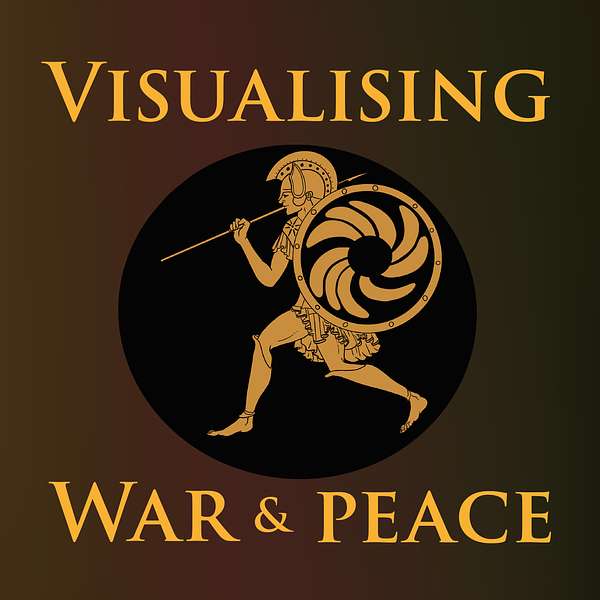
Visualising War and Peace
How do war stories work? And what do they do to us? Join University of St Andrews historian Alice König and colleagues as they explore how war and peace get presented in art, text, film and music. With the help of expert guests, they unpick conflict stories from all sorts of different periods and places. And they ask how the tales we tell and the pictures we paint of peace and war influence us as individuals and shape the societies we live in.
Visualising War and Peace
The Just War Tradition with Anthony Lang Jr and Rory Cox
In this episode Alice and Nicolas interview two University of St Andrews colleagues, Prof. Anthony Lang Jr of the School of International Relations, and Dr Rory Cox, Senior Lecturer in the School of History. Tony’s research focuses on how politics, law and ethics intersect at the global level, with a particular emphasis on human rights, international obligations and the just war tradition. Rory’s research is centred on the ethics of war, the history of violence, and intellectual history, and he explores these topics with an impressively wide chronological range, including ancient Egyptian Just War doctrine, medieval military history, debates on the use of torture, and the history of terrorism.
In the podcast we discuss the different ways in which communities and individuals have visualised and articulated the complex relationship between war and justice. Tony and Rory talk us through some of the ideas associated with jus ad bellum (justifications for going to war), jus in bello (laws of conduct during war) and jus post bellum (the responsibilities that states/combatants might have in the aftermath of conflict). Rory stresses how varied different strands of thought within the Just War Tradition have been, taking us back into its deep history and challenging the myth that it is a product of purely 'Western' thinking. Rather than approaching it as a 'doctrine' (i.e. a set of principles that can be applied in any situation), he encourages us to think of the Just War Tradition as posing a set of important moral and ethical questions, to which there are no clear-cut or universal answers.
This gets us talking about storytelling - the narratives that individuals and states have told to 'justify' their involvement or behaviour in different conflicts. We discuss the visualisation involved in justifying means via ends, and Tony reflects on the relationship between justifications of war and the fairy tale tradition (invoking Tolkein's idea that all fairy tales are 'eucatastrophes': stories with happy endings which involve great peril along the way). Rory highlights the key role that language plays in colouring how 'just' or 'unjust' we think different conflicts are - and, indeed, how we conduct them. We consider the impact which Just War thinking (on the one hand) and the political justification of a conflict (on the other) can have on soldiers' sense of identity and behaviours. We also talk about the role played by law courts, the press, social media, the film industry and gaming in shaping public perceptions of jus ad bellum, jus in bello and jus post bellum - and how public consensus in turn shapes the stories that policy-makers tell and the decisions they take.
As Tony and Rory stress, the Just War Tradition is deployed in culturally specific and highly subjective ways. It sometimes helps prevent conflict, or mitigates its impacts, or holds people to account afterwards; but it can also be manipulated by influential figures within a community to persuade others to visualise war (or 'resistance' or 'terrorism', or torture, or 'the enemy', or the prospect of peace) in particular, self-serving ways.
We hope you enjoy the discussion. For a version of our podcast with close captions, please use this link. For more information about individuals and their projects, please visit the University of St Andrews Visualising War website.
Music composed by Jonathan Young
Sound mixing by Zofia Guertin